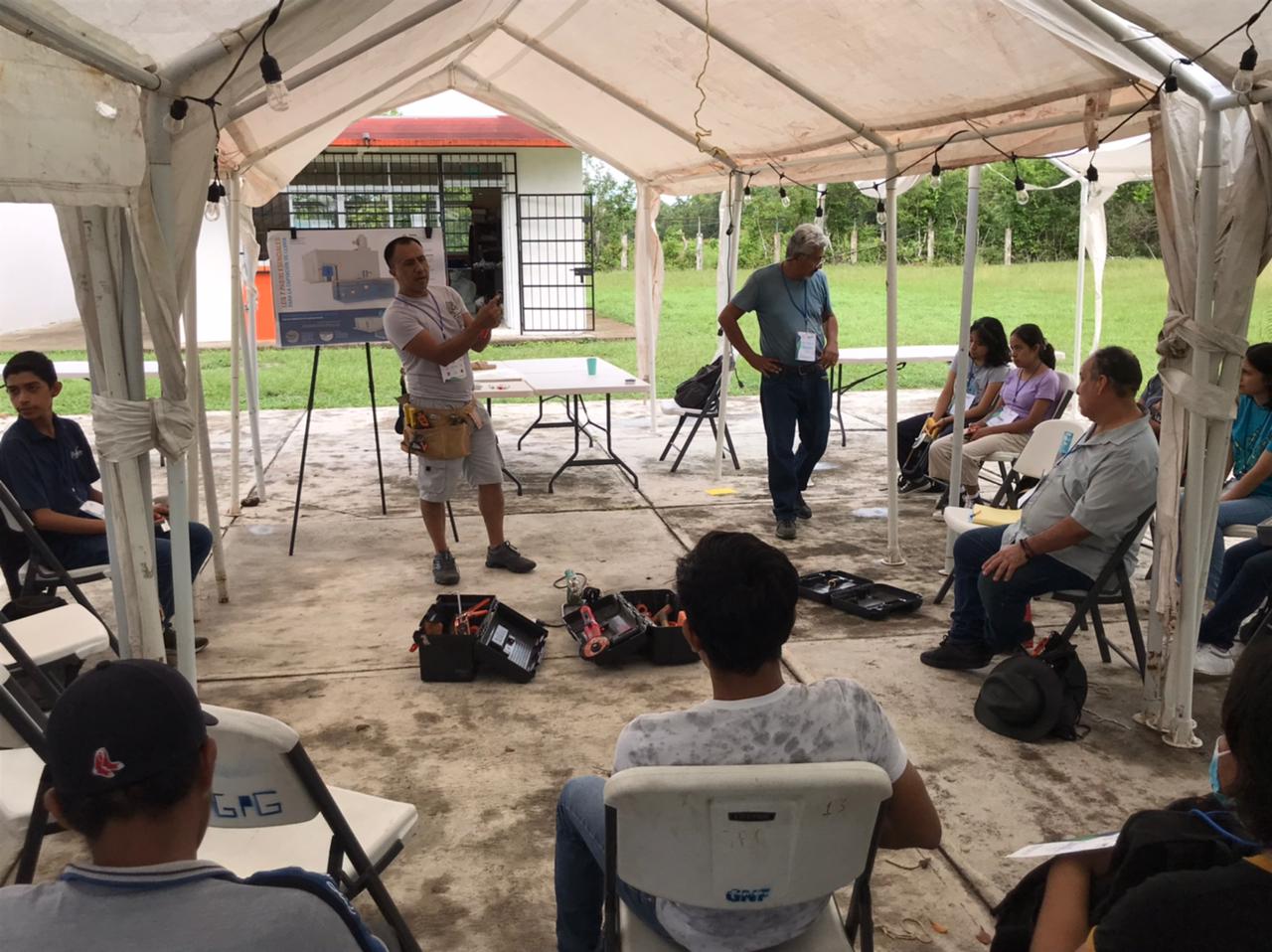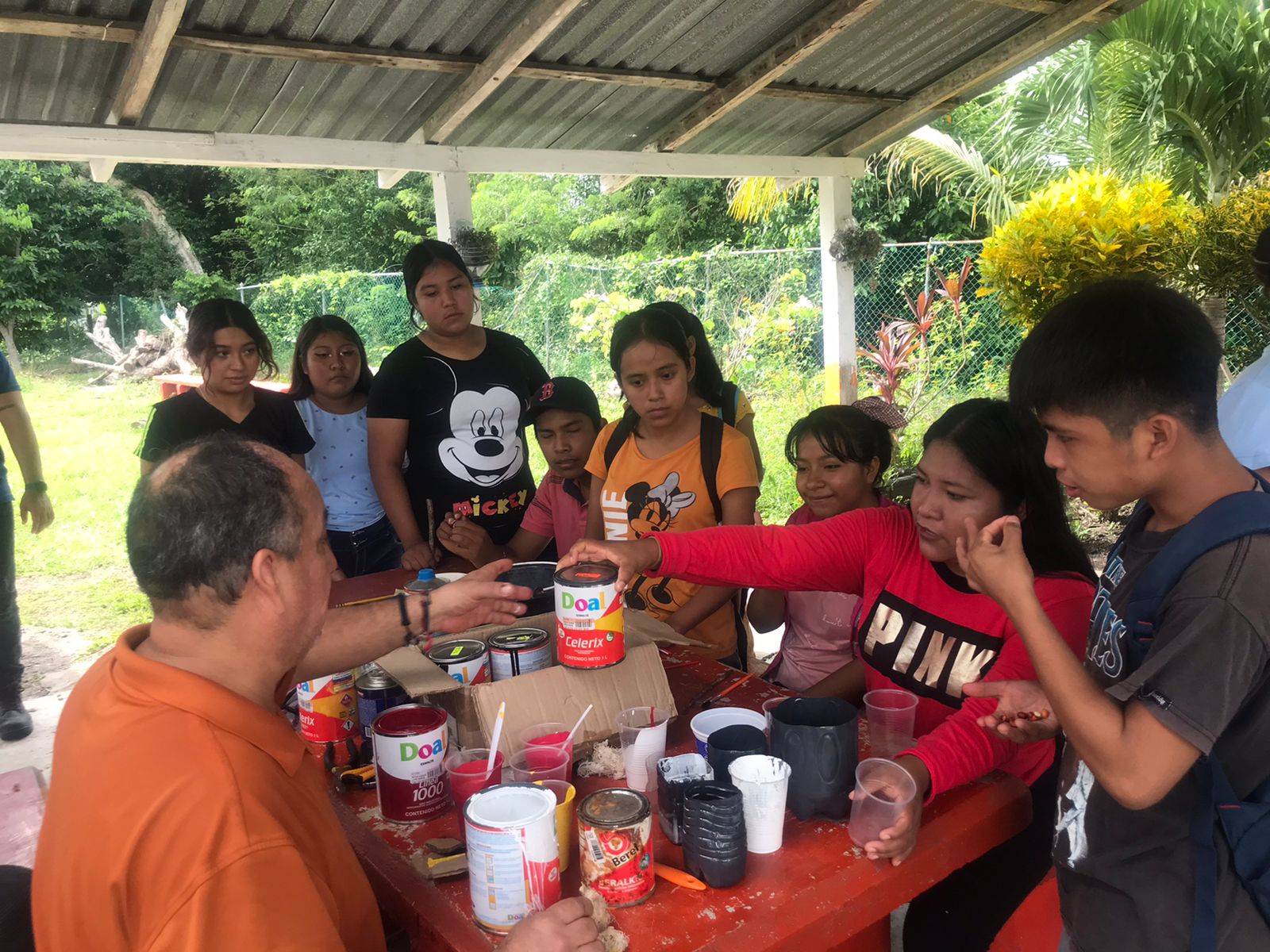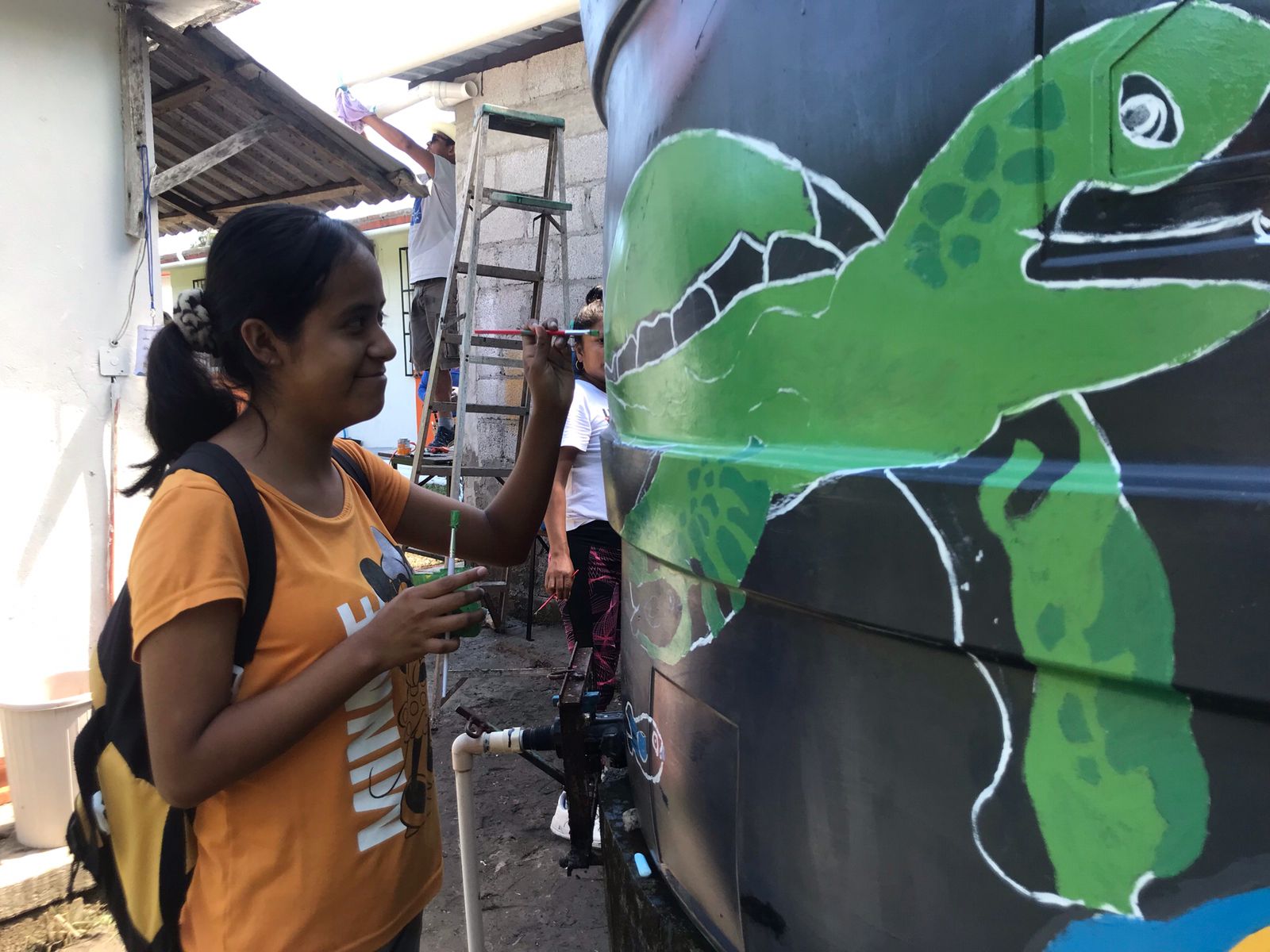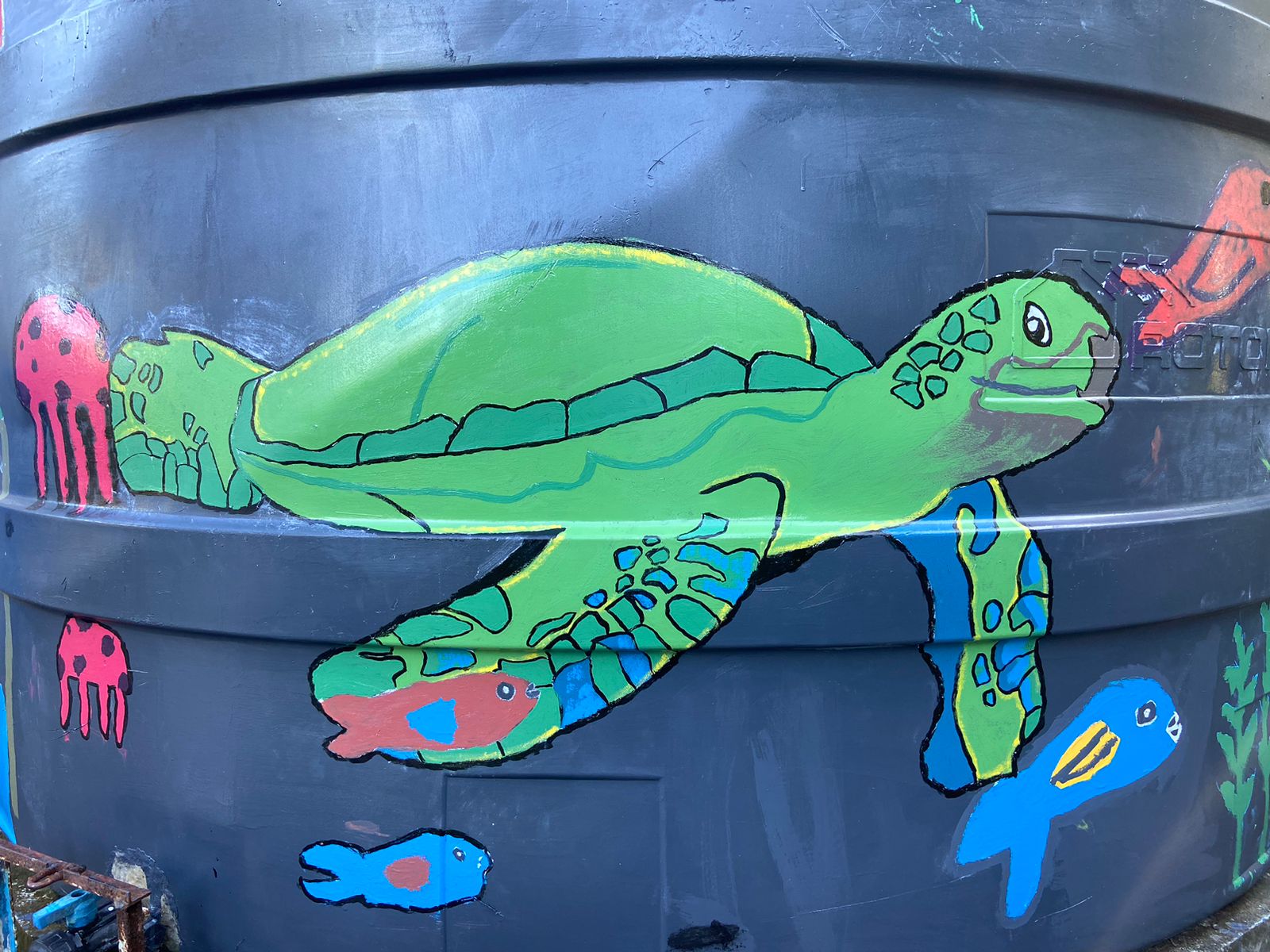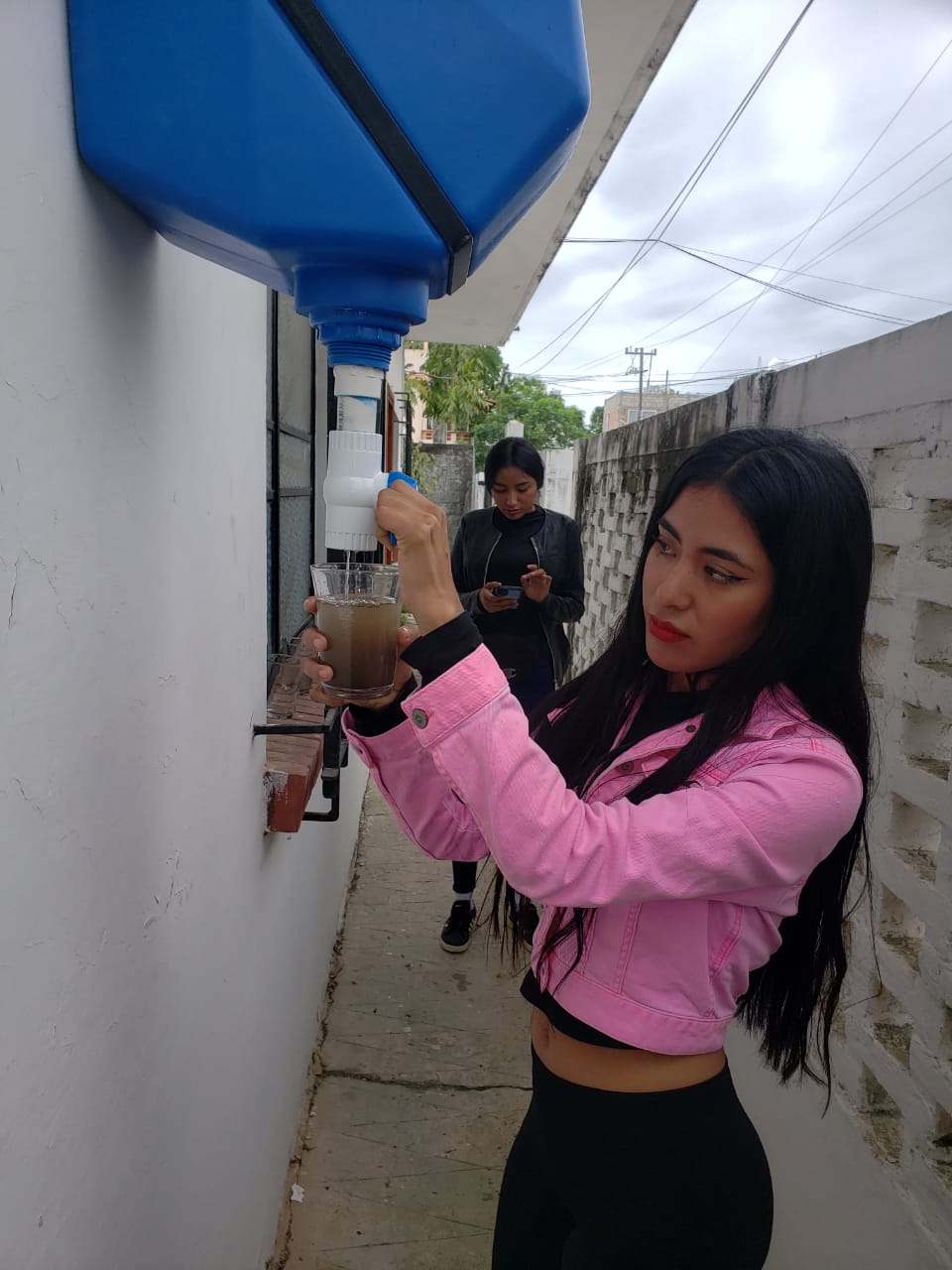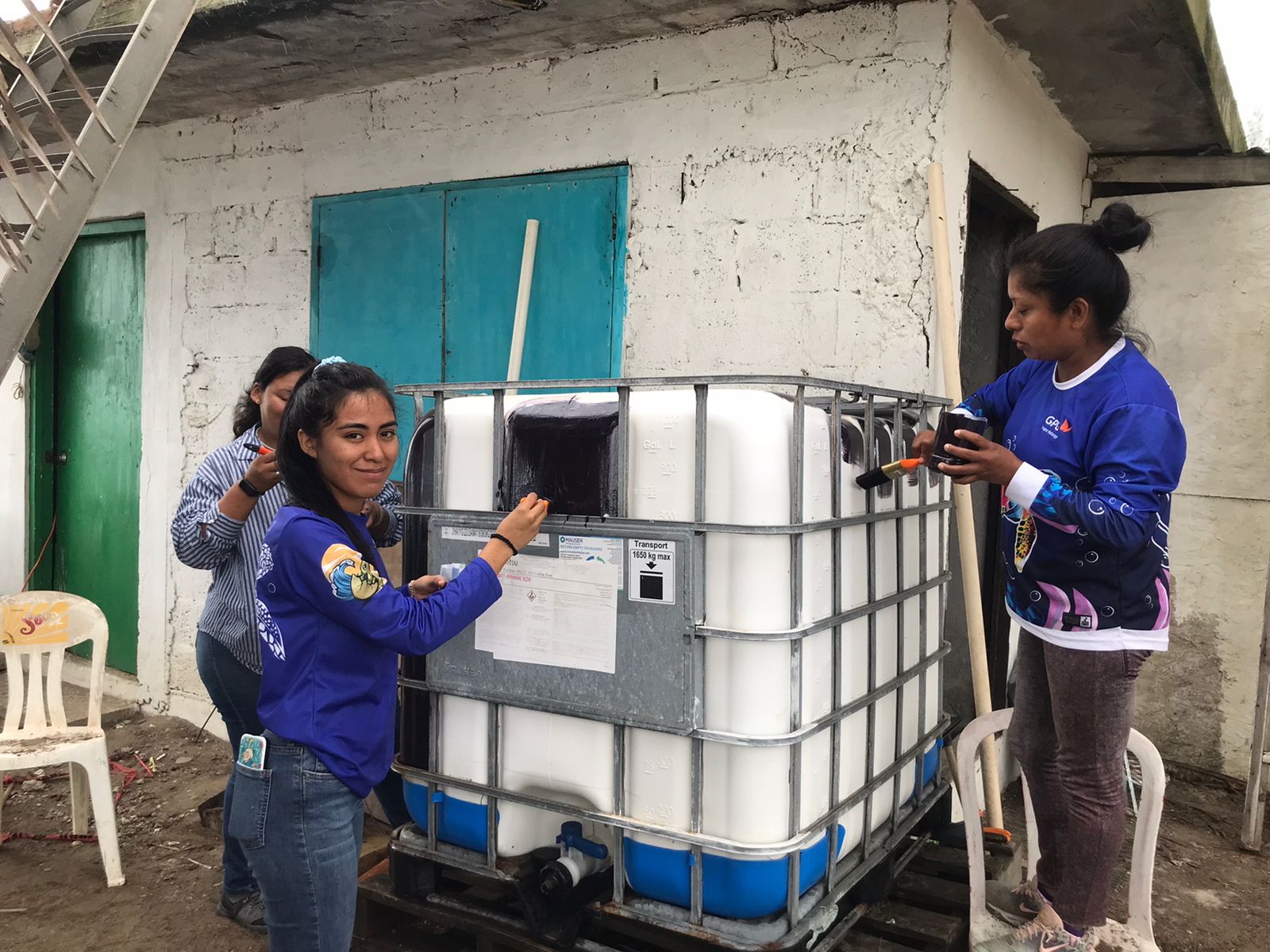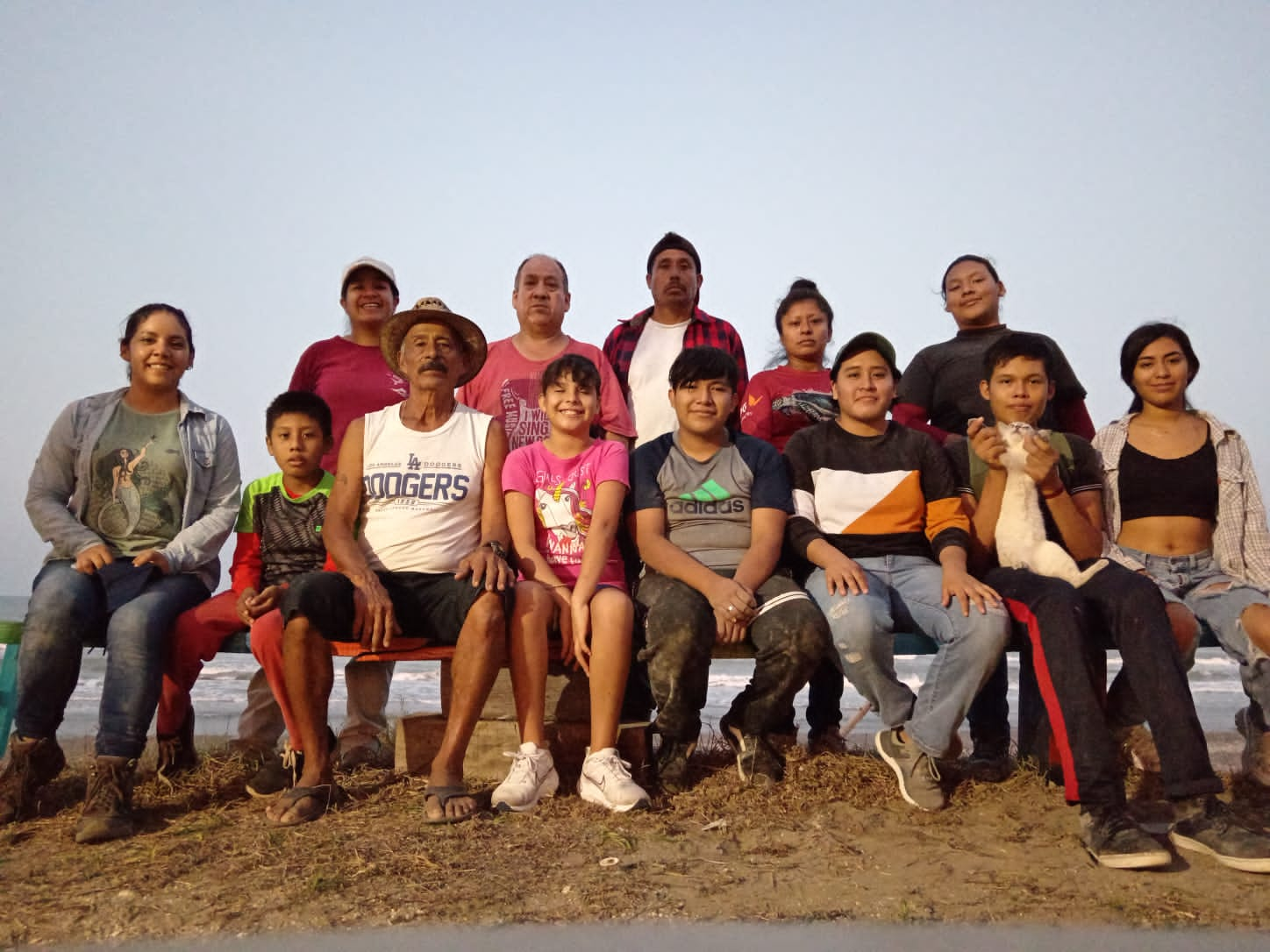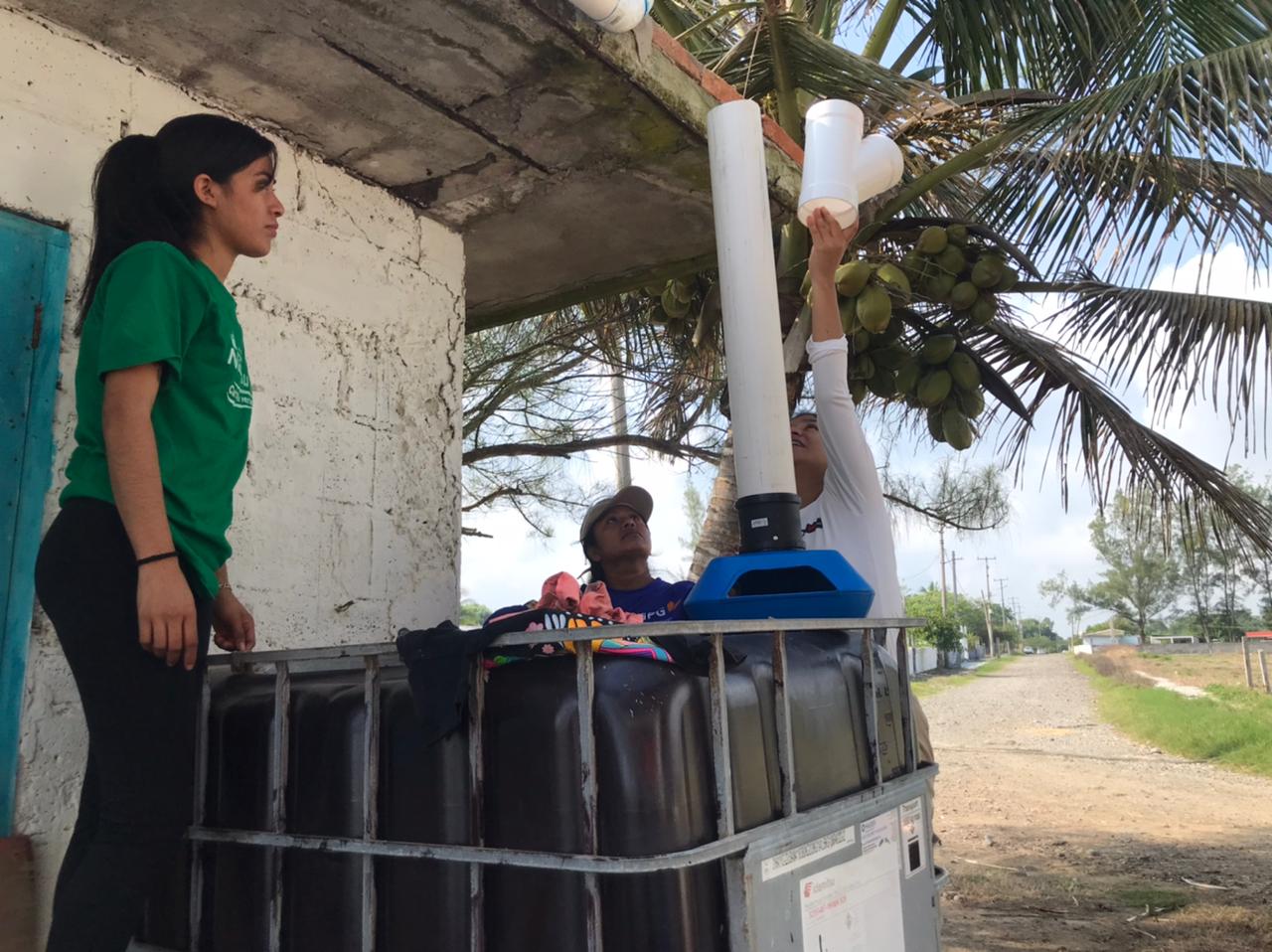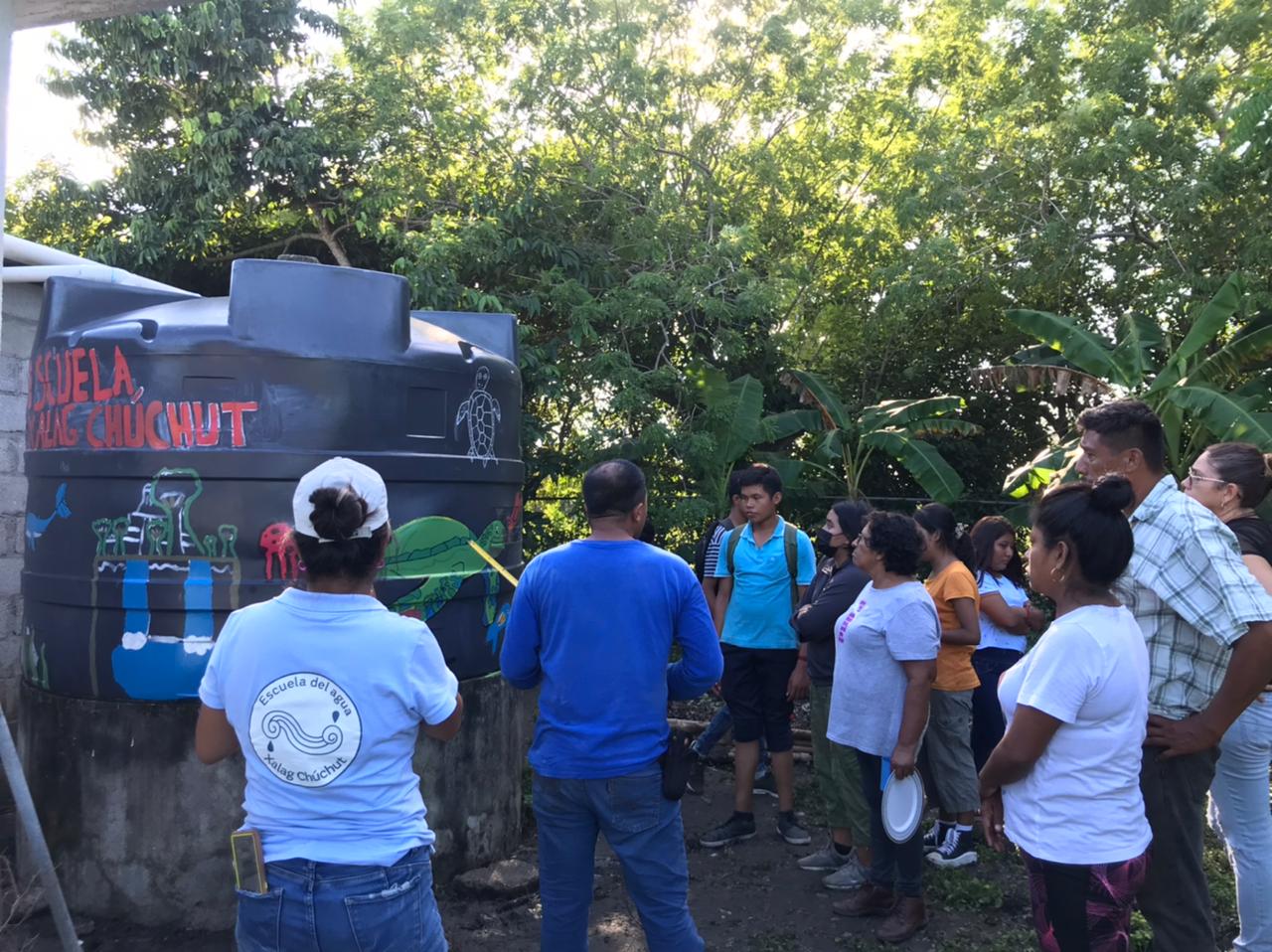Water shortages along the Kilometre route have been a recurring problem for many years. They are caused by a variety of factors including overuse of municipal and private wells, a virtually non-existent water distribution infrastructure and changes in rainfall patterns, possibly due to climate change.
On 27, 28 and 29 October in the framework of the Xalag Chúchut school we worked with Isla Urbana, an organisation focused on providing proposals for practical rainwater harvesting in order to supply water to marginalised communities.
In the last 14 years, more than 33,900 systems have been installed, impacting 645,871 people in different parts of Mexico. In recent years, the systems installed in Latin America have collected 2.018 billion litres annually. In addition, they have generated significant savings in energy, network infrastructure and, in many cases, thousands of water distribution pipes in urban and rural areas.
Isla Urbana has developed an eco-technology that has won several awards (BBC World Challenge 2010, Deutsche Bank Urban Age Award 2010, Water Challenge 2020, Mtech35 2013, etc.) for the simplicity and efficiency of its proposal, which enables self-sufficiency in drinking water from rainwater.
What is eco-technology?
Guttering is installed on the roofs of houses, shops, etc. with the aim of collecting rainwater and directing it to a single point. It is important to bear in mind that the roof should be kept as clean as possible, as the water that is later used for bathing or drinking falls here.
When it rains, the water enters a separator for the first rainfall, called “Tlaloque” (in the Mexican world view, the Tlaloques are the helpers of Tláloc, the god of rain, water and fertility), which takes care of 75% of the purification of the water: it calibrates, closes it off and stores the water. The water is then passed through a leaf filter to retain large solids, branches and so on. From there, it is finally channelled into a cistern to store it.
“Eco-technology offers a distinctive combination of simplicity and effectiveness, empowering every family to establish their own independent water supply without the need for external sources or intermediaries,” said Hiram Garcia, the organisation’s Director of Engineering.
“The benefit is almost instant. Once the system is installed, if there happens to be a heavy rainfall in the afternoon, the family will have access to clean water on that very same day,” says Aliyeri Díaz, Distributor Coordinator.
Furthermore, as part of the program, a rainwater harvesting system, known as a scall, was installed at the Telebachillerato del Kilómetro 8. This school has been our host for all the modules that have taken place.
From 30 October to 5 November, additional training was held to certify some technicians for the installation, maintenance and operation of the scalls to be used as eco-technologies on the Kilométros route and surrounding areas. Twelve people were invited to this certification, including technicians from the turtle camp, high school students and scholarship holders from Día Solidario.
